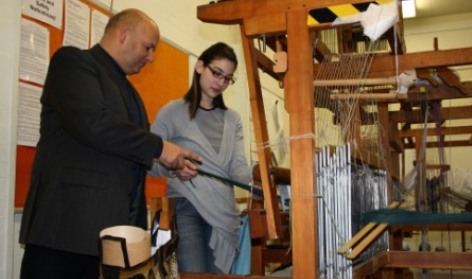- 1908
- Centre for Applied Philosophy, Politics and Ethics
- Waste and Energy Research Group
- Aggregating the Student Voice
- Aesthetics of protest: Visual culture and communication in Turkey
- Barrier Solutions
- BRIDGE (Building Research & Innovation Deals for Green Economy)
- Breathing City
- Brighton Fuse ‘Fusebox’ Knowledge Exchange Project (2014-15)
- Brighton Fuse
- brightONLINE
- Community 21
- Community Media 4 Kenya
- CETLD
- Continuous Productive Urban Landscape
- Culture, Sport and Wellbeing - What Works for Wellbeing Programme
- Digital Policy: Connectivity, Creativity and Rights - ESRC Seminar Series
- Designing for the Future
- Digital Archaeology:
- Drawing Research Interest Group (DRIG)
- Drawing as a pedagogical tool
- Drawing research
- Discovering Digital Me: Forging Links across Digital Identity, Digital Literacy and Digital Economy (2011 - 2013)
- E-ARK
- Edible Campus
- FutureCoast - FutureCoast Youth
- Flax – Increasing its Value for Society
- Graphic Brighton
- Here Today - Moving Images of Climate Change
- Healing War Through Art
- Hide
- ISEA
- The Role of Iconicity in Language Learning
- Improving Exercise Devices for Patients with Rheumatoid Arthritis
- Innovation for Renewal (IFORE)
- INTERREG IVA ProjectFlax
- Invisible Machines
- LGBT Queer Life Research Hub
- LiVi
- MacDonald Gill
- Mobility of the Line / Utility of the Line
- Networks - Subject Centre Magazine
- Networks
- National Recording Project - Sussex
- Our Dancing Feet: Regent Dancehall/Wintergarden
- Postgraduate Design History Society (PDHS)
- Placemakers Space
- Portland Sculpture and Quarry Trust: Memory Stones
- Ryerson Brighton image exchange
- Research news archive
- Silver Stories
- sKINship
- Smart e-bikes
- StoryA | STORY Abroad
- Structural Health Monitoring System (SHMS) for earthquake zones
- Tempus Esprit
- Transnational perspectives on women's art, feminism and curating
- The Centre for Screendance
- The Craft of the Woods: A New Cultural History of the British Woodcraft Movement
- The Design Education Association
- Traces of Nitrate
- Tempus CORINTHIAM
- Tempus IDEA
- Urban Transformations Pathways from Practice to Policy
- VI-Suite
- Visual Learning Project
- The People's Pier: The popular culture of pleasure piers and cultural regeneration through community heritage
Home » Projects archive » CETLD » The identities of design disciplines » Co-Working: Exploring the Ways Teacher-Practitioners Shape Students’ Learning Experience
Co-Working: Exploring the Ways Teacher-Practitioners Shape Students’ Learning Experience

The Co-working project assesses the scale and impact of contributions made by design practitioners to Fashion and Textiles Higher Education
Project leaders and researchers: Malcolm McInnes & Jake Leith - Department of Fashion and Textiles, University of Brighton
This research is timely as it addresses governmental concerns as to whether education is delivering the appropriate skills to ensure students are employable post-graduation. The project explores the experiences of teacher-practitioners in higher education, and observes how they facilitate student learning and enhance student employability within the Fashion and Textiles industry.
The research aims to highlight what motivates Fashion and Textiles practitioners to engage in teaching and how teacher-practitioners shape undergraduate and postgraduate learning support in the curriculum. The research examines the perceived benefits and limitations of teacher-practitioners by both staff and students in Higher Education.
Finally the research explores how the Higher Education community currently supports the teacher-practitioner and how this particular relationship may be maximized further at this level.


